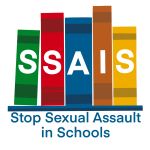by Esther Warkov
This article originally appeared in Huffington Post on May 9, 2017
The Boston Globe’s Pulitzer-prize winning investigative team, Spotlight, was portrayed in the academy-award winning movie “Spotlight” about its 2002 expose of child sexual abuse by Catholic priests. The Globe has now published a report by Spotlight journalists titled “Private Schools, Painful Secrets,” about sexual abuse of students in elite private schools.
In preparation for this report, the Spotlight journalists asked Stop Sexual Assault in Schools (SSAIS.org) to explain “whether there is anything specific about private schools that makes it fertile ground for sex abuse to go undetected for years and/or for schools to be more likely to cover it up.” Here’s what we told them:
With increasing awareness of widespread sexual harassment and assault in K-12 schools, you’d expect parents to investigate the possibility of sexual harassment and misconduct in their chosen private school. Instead families mistakenly assume that private schools provide a safe haven from the risky behaviors they associate with public schools. It’s difficult to imagine applicants in pursuit of placement asking for the school’s sexual harassment statistics at the admissions interview!
Exposing sexual harassment and misconduct is never easy but private school culture offers unique challenges. Parents enter the private school community with high expectations commensurate with high tuition. Sex abuse cases taint schools’ ability to both attract students and raise funds in support of their endowments. Who would want to pay $50, 000 tuition or fund an endowment where there is sexual abuse? Once a child is admitted, parents are so emotionally and financially invested in their student’s success that it may be impossible to accept or act upon reports of sexual harassment and abuse—this coupled with the fact that these schools are small and “everyone knows everyone.” What parent wants to be a social outcast?
Some teachers are so adulated that a student’s report of misconduct is considered sacrilege. Students who might report fear that adults will not believe them, that they will be shamed or thrown out entirely. Fear, intimidation, and loss of opportunity are strong deterrents to reporting. If confronted, the school will likely deny, distort the facts, or devalue the student’s rights. Imagine the student’s future at the school after reporting. How many families who have endured the trauma of reporting and the school’s response would then relish spotlighting the abuse with a lawsuit?
To protect the school’s reputation, school administrators buy into a “code of silence.” This code of silence is enabled by mandatory reporting protection laws that seem tough but lack teeth and can be vague or confusing. Moreover, there is no real penalty for not reporting. In Massachusetts, mandated reporters are only subject to a maximum fine of $1,000 if they fail to report; in New Hampshire knowingly failing to report is only a misdemeanor. According to the Commonwealth of Massachusetts Disabled Persons Protection Agency, mandated reporters, such as teachers, fail to report because they are unclear about the responsibly to report and may fear legal proceedings or retaliation from the alleged abuser. There’s a bill under consideration that would make it a crime in Massachusetts to fail to report a complaint of sexual misconduct in public and private schools. In short there’s no incentive to report and no real penalty for failing to report.
Few parents understand their recourses when sexual harassment and misconduct occur at a school—whether private or public. Any school receiving federal funding—and many private schools do—is accountable to the U.S. Department of Education for enforcement of Title IX, a civil rights law that includes the right to an equal education free from sexual harassment and gender-based discrimination. Parents might assume that because their particular school didn’t receive federal funding, it is exempt from Title IX responsibilities. A recent court decision set a precedent that if a private school accepts federal funds, Title IX applies to that school and all other schools within the same organization. If a school can be held accountable to Title IX, families have a far wider range of rights and recourses.
Private schools that aren’t subject to DOE guidelines and enforcement of Title IX enjoy a degree of latitude -depending on their state laws—regarding their obligations to prevent and report sexual harassment and abuse, according to State Regulation of Private Schools published by the US Department of Education. This document suggests that some states have no requirement that private schools address or report sexual assault and abuse; Massachusetts, for example, is only required to proactively address hazing, but not sexual harassment or assault.
It’s ironic that parents send children to private schools to avoid sexual harassment and misconduct only to find out that when it does occur, public schools offer far more protection under Title IX. Families might rightly argue that Title IX establishes a level of care for all schools, and that private school students deserve the same level of protection available to public school students.
Selected related articles:
- Washington Post: Sexual violence isn’t just a college problem. It happens in K-12 schools, too
- Lawmakers Shift Campus Rape Conversation to High Schools
- As the Mother of a Rape Victim I Know Consent Education Is Not Enough
- Activists Take Aim At High Schools For Mishandling Sexual Assault
- What the White House Asked Us About K-12 Sexual Violence
